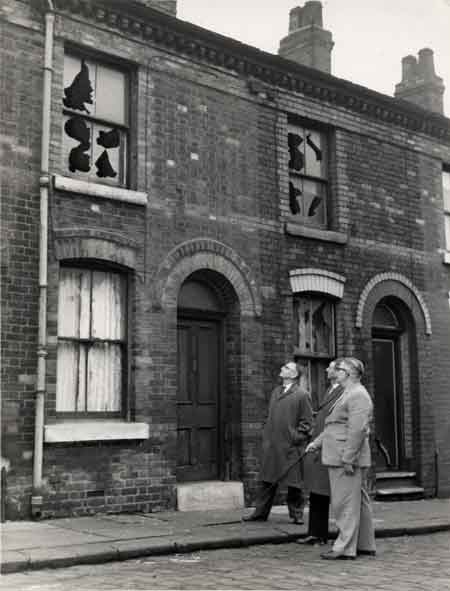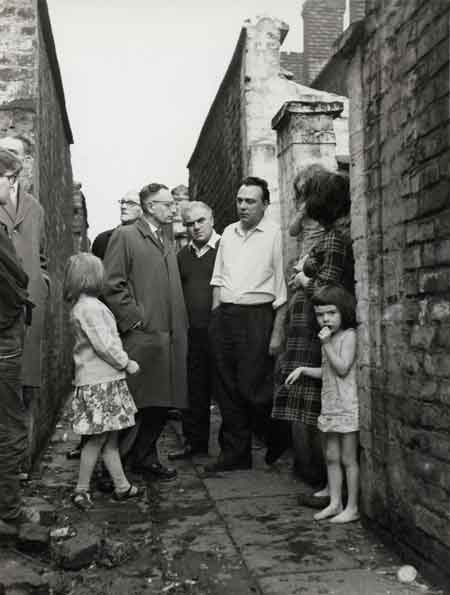This week we have a guest post from Belinda Scarlett, Library Manager at the Working Class Movement Library in Salford. Belinda writes about the Library’s involvement in The Modern Backdrop project and some of the archive material the Library holds.
The Working Class Movement Library was founded in the 1950s by socialist historians, trade unionists and activists, Edmund and Ruth Frow who, inspired by the tradition of working class self-education amassed a huge collection of books and ephemera covering the history of working class movements. They gave access to their collection to everyone, encouraging people from Salford and Manchester to learn about their own working class history. Today, we continue to house, care for, and provide open access to our collection. We also organize events and exhibitions to engage people with our work.
We were delighted to be approached by the Modern Backdrop team from the University of Salford and to be asked to get involved in their project exploring modern architecture and communities in Salford. The library has been a part of Salford’s landscape since 1987 and the building it calls its home, Jubilee House, since 1901. Much of our archive represents the working class communities of Salford and Manchester and we were able to provide a familiar and accessible home for the exhibition and a meeting space to explore the issues raised by the Modern Back-drop project.
In January 2023 we opened ‘Capturing the Modern Backdrop: Shirley Baker photographing Salford’ an exhibition curated in partnership with the University of Salford team. The exhibition featured photography by Shirley Baker alongside archival material from the library collection. The exhibition was very successful, and we were able to attract many more visitors to our exhibition space, many of whom had not visited the library before.
Working on the exhibition gave me the opportunity to explore our collections relating to housing and living conditions in Salford. As a relatively new Library Manager, it is always a joy to have an opportunity to explore in depth some of the amazing collections that we hold and to spend some time getting lost in the archive.
I uncovered some fascinating material, including literary representations of life in Salford such as Walter Greenwood’s Love on the Dole and the semi-autobiographical, The Classic Slum by Robert Roberts.
We also displayed photography from our Frank Allaun archive. Frank Allaun was a Labour MP in Salford for 28 years from 1955 and a committed housing campaigner. His archive includes press photography from his time surveying housing in Salford and his interactions with local people to understand their housing needs and communicate the changes that ‘slum clearance’ and the move to modern high rise housing would, he hoped, bring about.


One of the most interesting parts of our collection is comparing the material produced by the City Councils, MPs and others working in housing in an official capacity with the material produced by the people and communities experiencing the reality of decisions made by those in power and how they challenged it. Some examples of the campaign material our collection includes pamphlets and reports from Manchester and Salford Housing Action active in the 1970s, squatting campaign material and the community magazine, Salford Star which covered housing in Salford in the 2010s. Our collection also includes pamphlets produced by the Communist Party Great Britain from the 1920s that outline their approach to housing and housing crisis and other campaigning organisations such as Shelter.
The combination of archive material alongside the impactful and beautiful photography of Shirley Baker, herself from Salford, had a big impact on our visitors and we received positive and moving comments in response.
The exhibition has been the start of a continued partnership between the Modern Backdrop project the University of Salford’s architecture department as we continue to explore the role of modern housing in the history of Salford’s working class communities and the communities ongoing activism in relation to their living and housing conditions.
To find out more about the work of the Working Class Movement Library, please visit our website www.wcml.org.uk and follow us on social media @wcmlibrary